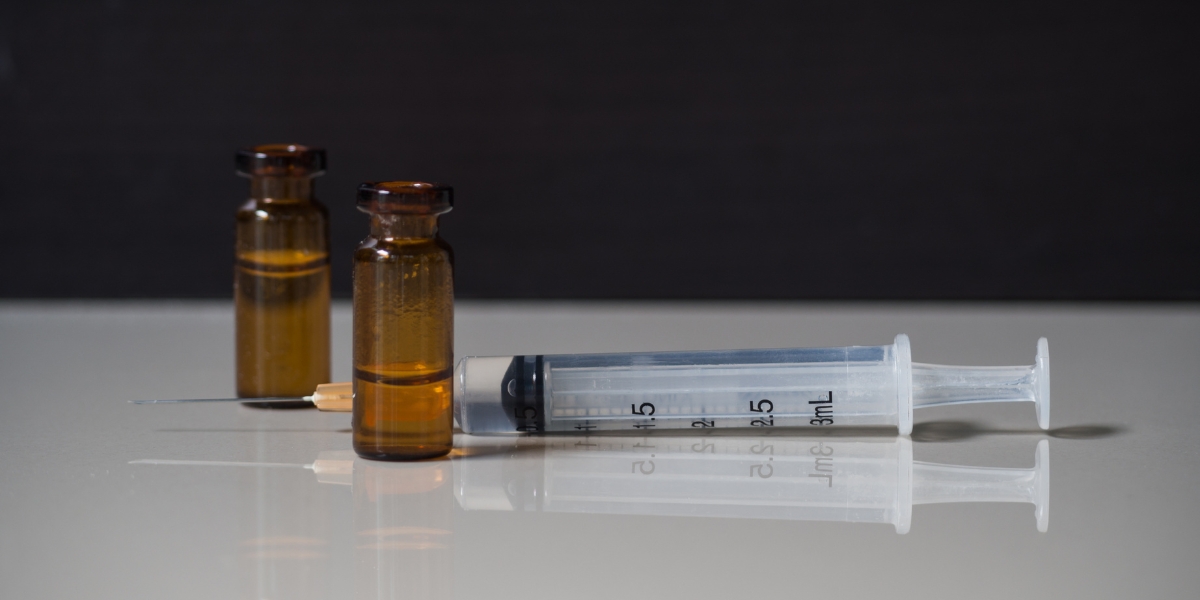Ketamine Addiction

Ketamine is a potent tranquilizer primarily used in veterinary offices and on farms. Although it is FDA-approved for limited and specific medical procedures in humans, ketamine is a Schedule III controlled substance.
In the 1990s, it became popular as a party drug. People would take it in large doses to experience pleasure, hallucinations, and sedating effects.
Recently, ketamine has entered clinical experimentation to alleviate depression and post-traumatic stress disorder. Regrettably, the outcomes of these trials have not reached a definitive verdict. Although some people think ketamine can help their mental health, it often has bad effects.
Ketamine addiction is rising among young adults because it is seen as a recreational drug that can improve their mental health.
What Is Ketamine?
Ketamine is a dissociative anesthetic. Regulatory authorities have approved limited applications in human and veterinary medicine.
Its primary function is rapid sedation and delivering pain relief without causing loss of consciousness. However, recreational drug users are drawn to its euphoric effects and the out-of-body experiences it produces when taken in higher doses.
Ketamine is often available as a clear liquid for injecting and a white powder for snorting or taking by mouth.
Ketamine is known by various slang names, including:
- K
- Special K
- Vitamin K
- Horse tranquilizer
- Kit kat
Unfortunately, some dealers use ketamine as an adulterant or cutting agent in other drugs like heroin or ecstasy to enhance their potency.
What Kind of Drug Is Ketamine?
Ketamine is a sedative and pain relief medication commonly used by medical professionals. Doctors use it for minor procedures or to calm upset patients in emergencies instead of full sedation.
Lately, mental health experts and researchers have tested ketamine as a treatment for severe depression and suicidal thoughts.
Ketamine is also a drug used for fun. It can make you feel relaxed and happy and changes how you see and hear things. When individuals consume more of it, they desire a powerful sensation that disconnects them from their thoughts and physical being.
Certain users compare the impact of ketamine to a near-death experience. People often use ketamine for sexual assault and sometimes refer to it as the date rape drug. The perpetrators secretly give it to unsuspecting victims to incapacitate them and prevent them from resisting sexual assault.
How Addictive Is Ketamine?
When used in controlled medical environments, ketamine exhibits a low potential for addiction. Nonetheless, those who use ketamine recreationally or as a form of self-medication for mental disorders face an elevated risk of developing an addiction to ketamine. Consistent use of ketamine develops tolerance along with both physical and psychological dependence.
Combining ketamine with alcohol and other illicit substances magnifies the potency of its psychological effects, increasing the risk of addiction. If you stop using ketamine after regular use, you may experience withdrawal symptoms. These symptoms could make you want to continue using ketamine to avoid them.
Effects of Ketamine?
The experience of ketamine can vary depending on the amount taken to achieve the desired high. The most intense effect of ketamine is often referred to as a “k-hole.” During this experience, users may experience a spectrum of side effects before reaching an out-of-body or near-death state.
Ketamine takes effect rapidly, with the peak high lasting approximately 45 to 60 minutes. However, the lingering dissociative effects can persist for up to 24 hours, particularly with high doses of ketamine.
The effects of ketamine may include:
- Euphoria
- Relaxation
- A sensation of full-body buzzing or widespread tingling
- Nausea
- Vomiting
- Distorted perception of sight and sound
- Dilated pupils
- Distorted sense of time
- Loss of coordination
- Impaired judgment
- A trance-like state
- High blood pressure
- Respiratory depression
- Increased heart rate
- Stiff, immobile limbs
- Inability to respond to stimuli
- Confusion
- Disorientation
- Hives
- Excessive drooling
- Loss of consciousness
- Memory loss
- Auditory and visual hallucinations
- Seizures
- Loss of bladder and bowel control
The excessive consumption of ketamine or mixing it with other depressant drugs significantly increases the likelihood of dangerous side effects and overdoses. Individuals experiencing a k-hole while under the influence of ketamine are at risk of cardiac arrest, coma, or choking on vomit.
If the effects of ketamine present as potentially life-threatening, it is crucial to call 911 or immediately seek medical assistance at the nearest emergency department.

Signs and Symptoms of Ketamine Addiction
Because ketamine is so potent, it is challenging to hide the effects of ketamine abuse, but many attempt to do so.
Addiction to ketamine does not typically manifest all at once. Instead, signs and symptoms of ketamine abuse tend to emerge gradually and randomly, worsening over time. Early recognition of a substance use disorder is crucial in starting a conversation and helping loved ones seek treatment.
Signs of ketamine addiction and abuse include:
- Grogginess or sluggishness
- Frequent urinary tract and kidney infections
- Difficulty concentrating
- Depression and anxiety
- Excessive fatigue and drowsiness
- Aggravation of mental health symptoms
- Engaging in secretive behavior and lying about ketamine use
- Presence of needles, empty vials, or other drug paraphernalia
- Neglecting personal and professional responsibilities
- Decline in personal hygiene
- Social isolation
- Chronic health problems
- Suicidal thoughts
- Experiencing withdrawal symptoms
People dependent on ketamine should reach out to a professional for help exploring their options for quitting rather than trying to do it alone. Overcoming ketamine addiction involves navigating the withdrawal process, which can be intense and challenging without proper support.
Ketamine Withdrawal
While ketamine withdrawal is generally not life-threatening, it can cause discomfort and unease. The risk of relapse remains a significant threat, and the psychological effects of withdrawal carry equal significance to the physical effects.
The length and intensity of ketamine withdrawal can vary among individuals, commonly commencing within 24 hours after the last dose and extending for up to one week.
Symptoms of ketamine withdrawal include:
- Sweating
- Restlessness
- Agitation
- Changes in appetite
- Fatigue
- Muscle weakness
- Fever
- Chills
- Muscle and joint pain
- Abdominal cramping
- Nausea
- Dizziness
- Bladder pain and discomfort during urination
- Thirst
- Delayed reflexes
- Blurry or distorted vision
- Anxiety
- Depression
- Sleep disturbances
- Thoughts of self-harm
Individuals who mix ketamine with alcohol are at a higher risk of experiencing complex withdrawal symptoms, including alcohol seizures and the development of protracted withdrawal syndrome (PAWS).
Individuals who use ketamine to self-medicate depression or other co-occurring disorders may confront rebound symptoms that have harsher effects than the original symptoms. Opting for supervised medical detoxification can assist in mitigating the most severe withdrawal symptoms and reduce the likelihood of complications and long-term effects.

Treatment for Ketamine Addiction
No matter the circumstances or reasons behind your ketamine addiction, physical dependence, or substance misuse, compassionate and evidence-based treatment is available.
At Northridge Addiction Treatment Center, we embrace a comprehensive and evidence-based approach to help individuals tackle and overcome all aspects of addiction. Our dedicated team is committed to providing a holistic treatment experience. We offer on-site medical detox, ensuring constant support and care throughout the withdrawal process to promote safety and comfort.
Our dual diagnosis approach addresses co-occurring disorders, treating your mental health and addiction. NATC gives you the tools and confidence to recover in the long term.
A fulfilling life in recovery awaits you. Our treatment specialists are eager to connect with you. Reach out to us today.
Find Meaningful Recovery
Our caring and compassionate specialists are eager to help you comfortably navigate this journey to recovery. Our individualized treatment plan, programs, and therapies may be a perfect match for you or your loved one. Let us assist you in living the happy life you deserve. It starts with a phone call.




